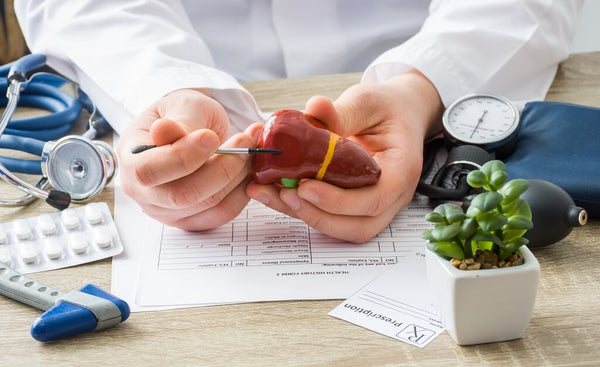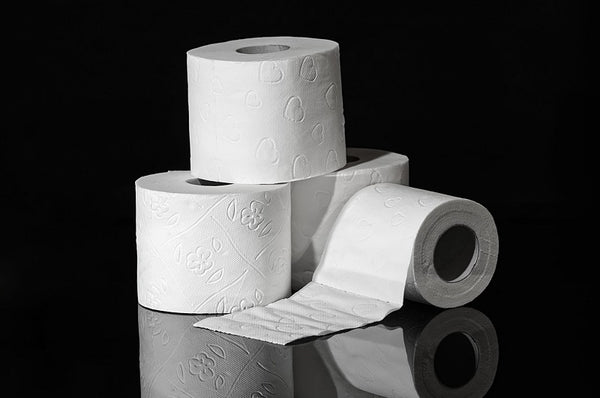What is Overactive Bladder (OAB)?
An overactive bladder (OAB), sometimes referred to as an irritable bladder, is a common condition of the urogenital system characterised by a pressing and/or rapid and urgent sensation of needing to urinate. This feeling of urgency may or may not occur frequently and can be difficult to control, resulting in urinary incontinence (involuntary loss of urine control). An overactive bladder may be caused by ineffective urination where the bladder loses its muscular tonicity and can not hold onto the 300ml capacity of urine. As a result, frequent urination is experienced.
Helping to restore bladder tone can be achieved by slowly increasing your water intake to the recommended 2 litres per day. This helps strengthen the integrity of the bladder and ensures that the body is eliminating adequate amounts of wastes. Increasing water intake also has a positive effect on bladder tone because metabolic waste can cause irritation which can contribute to an overactive bladder.
Possible causes of overactive bladder (OAB)
- Diabetes
- Obesity
- Prolapsed uterus
- Stress
- Recurring urinary tract infections (UTIs)
- Dehydration
- Infections
- Side effects of medications
- Underlying inflammatory conditions (i.e. acidity)
- Hormone replacement therapy
- Detrusor muscle overactivity
- Nerve damage to the area due to birthing trauma, multiple sclerosis (MS), stroke or spinal cord injury
- Urinary or kidney stones
- Weak pelvic floor muscles
The connection between the kidneys and the urinary system
You may also consider addressing any kidney deficiency as the bladder, urinary system and kidneys have an influencing relationship with each other. In Chinese medicine, an overactive bladder can be attributed to dampness and weak kidney energy.
The kidneys are a pair of organs situated at the back of the abdomen, below the diaphragm on each side of the spine just under the rib cage. Each kidney weighs about 150 grams. The major functions of the kidneys are:
- regulate blood pressure
- reduce acidity (metabolic acidosis)
- dispose of waste material from the blood
- regulate water and fluid balance
- produce erythropoietin to build new red blood cells
- maintain acid-alkaline balance
Waste flushed out from the kidneys (i.e. sodium, nitrogen, aluminium, urea, and metabolic waste) are removed from the body via the urine.
Healthy kidneys act as a filter to remove waste and fluids from the circulating blood. They also help keep the proper balance of salts and acids in the body and produce hormones.
Did you know that our kidneys filter 200 litres of blood every single day?
This is an essential process together with removing about 2 litres of waste products diluted in water. To remove this waste and extra water, blood enters the kidneys through the renal artery and is then cleaned as it passes through tiny filters called nephrons. One kidney contains about one million nephrons and each nephron contains a filtering apparatus called a glomerulus. Fresh, clean blood returns to the circulatory system via the renal vein and the wastes removed from the blood via filtration are excreted through the bladder and urine.
Diet tips to improve an overactive bladder
-
Drink herbal teas such as Dandelion Leaf and Green Tea. Besides optimising kidney function and filtration, they’re also gentle diuretics that help expel more waste and encourage better urinary tonicity.
-
Ensure adequate fluid intake by drinking at least 2 litres of water daily. The saying, “The solution to pollution is dilution” best explains the vital role the kidneys in eliminating waste from the body.
-
Reduce or eliminate diuretics in your diet. These include sugar, tea, alcohol, coffee and carbonated drinks. Diuretics place an extra burden on the kidneys’ filtration and cause the body to lose more water. They can also disrupt the sodium-potassium balance.
-
Watch your alcohol intake. Alcohol can dramatically impair kidney function by causing a diuretic action. This can lead to dehydration and place a burden on the kidneys to remove the waste aldehyde from the system.
-
Go for an alkaline diet. It cleanses and tones the kidneys and urinary system. An alkaline diet involves eating foods such as fresh vegetables and fruits, lemon juice, water, brown rice, miso soup and vegetable juices. An acidic diet includes inflammatory foods like sugar, wheat, dairy, red meat, oranges, alcohol, and preserved or processed food.
-
Have a vegetable juice each day to encourage liver detoxification and kidney filtration. Some great options are freshly juiced beetroot, carrot, celery and ginger or watermelon, pineapple, green apple and mint.
-
Check for any food sensitivities or allergies which may be aggravating urinary system issues.
-
Decrease sodium (table salt) consumption and replace with sea salt or vegetable salt. Sodium is important for the health of the kidneys, but not in excessive amounts which can result in fluid retention. Sea salt is rich in many minerals without being refined and does not contain aluminium (used in table salt to keep the salt dry).
- Vegetable broths are very rich in nutrients that are essential for the health of the kidneys as well. They’re also great for alkalising excess acidity levels to help take the burden off the kidneys’ filtration system. You can make a broth by boiling kidney beans and a mix of vegetables such as onions, celery, carrots, beetroot, spinach, sea salt, wakame (sea vegetables/ seaweed) and drinking a cup of the broth daily. This recipe is also very rich in minerals which again will help to fortify and nourish the kidneys while improving urinary system function.
Lifestyle factors to improve urinary bladder health
- Address underlying causes of decreased kidney function and overactive bladder (OAC). These include stress, acidity, dehydration, inflammatory conditions and a history of urinary tract infections.
- Heavy metals such as cadmium, lead, mercury and aluminium dramatically reduce kidney function and cause bladder irritation. Heavy metals are used in domestic, agricultural, industrial, technological and pharmaceutical applications so it’s best to keep an eye on environmental toxins that can affect our health.
- Some pharmaceutical medications cause fluid retention and a decrease in kidney and bladder function. Speak to your GP about possible side effects from any medications you may be currently taking.
- Practice your pelvic floor (Kegel) exercises daily as these exercises are aimed to strengthen the pelvic floor muscles and, ideally, the bladder. The pelvic floor muscles go around the urethral opening, vagina, and rectum in women. Like all exercises, they require frequent practice to strengthen the muscles and keep them strong.
Overactive bladder (OAC) syndrome can have a significant effect on the quality of life and affects 12-17% of the population. Its prevalence increases with age.
The management of OAC primarily involves the exclusion of the underlying pathology, with the first line of treatment focusing on lifestyle interventions, pelvic floor exercises and bladder training.





















